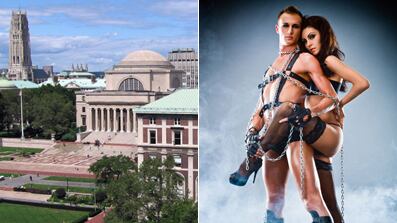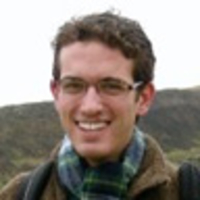At Harvard this fall, star chefs—including Wylie Dufresne of wd~50—are teaching a science class on molecular gastronomy. Middlebury has a class on the “millennial generation” that looks at representations of adolescents in Harry Potterand Glee. Smith, meanwhile, is offering a philosophy course on the semiotics of garbage titled “Talking Trash."
As high school seniors prepare to embark on the dreaded college-application process, incoming college freshmen are getting to the fun part: picking their course loads for the fall. This year’s hot topics on campus include sustainable food, privacy and surveillance in the age of Facebook, and old-fashioned economics courses, which are suddenly hot as students scramble to make sense of the financial collapse that will leave more of them saddled with college debt.
In the wake of the BP oil spill and the massive egg recall, it should come as no surprise that ecology is popular this year, particularly food ecology. There are courses on the politics of food, the history of food, the environmental impact of food production. And schools are approaching the topic more creatively than ever. Wesleyan has a course in food ecology taught by a choreographer that culminates in a live performance, among several other possibilities. Ecology is also making its way into literature departments, with the field of ecocriticism expanding beyond the mainstays of Rachel Carson, Edward Abbey, and Thoreau to include early-modern writers. At Brown, Professor Jean Feerick is looking at Shakespeare’s plays to see whether they put forward a different understanding of the relationship between nature and culture than the one prevalent today.
Economics departments are not only weathering the recession, they're diversifying their courses to take advantage of it. If the financial crash cooled students’ ardor to join the world of high finance, it got at least as many interested in the reasons for the collapse. Professor Scott Bessent, who teaches a course at Yale on the financial panic, says that though students are more skittish about finance as a career, “many are looking to make sense of the headlines they have seen for the past three years.”
UC-Berkeley has a course in which students design and test smartphone games that use data provided by urban surveillance networks that monitor things like crime and financial transactions. It's one of several courses available this year that focus on surveillance and privacy. Whether we should attribute the new interest in snooping to concerns over Facebook and Google or to the Russian spy ring is unclear, but between the surveillance courses and the many introductory robotics classes, an affinity for dystopias seems to be permeating campuses. There are a few courses on dystopia itself, such as Clark University’s course on the depiction of cities in science-fiction films. Not surprisingly, Deleuze and Foucault are popular as ever.
Gallery: This Year's Hottest Courses

This dark strain extends to the English departments as well. Classes about monsters have been around forever—after all, the oldest written English epic, Beowulf, is about a monster—but this year there appear to be more than ever. There are classes on zombies, cyborgs, ghosts, and, of course, vampires, the monster du jour. One engineering school is even promoting a fascinating course on the relationship between the occult and technology.
But it's not all gloom and doom. Tempering the turn toward the dark are a bevy of classes on comedy. Genre courses in general fell out of favor in the 1960s, but comedy has been making a comeback, according to Adele Davidson, who teaches an English course on the subject at Kenyon College, thanks mostly to renewed interest in its subversive potential. “Genre work is coming back in a more historicized and culturally inflected way ... The idea of comedy and carnival has taken new life, with a sense of the way that comedy challenges political authority and negotiates boundaries of gender and sexuality.”'
As a general trend, the increased number of courses on monsters, comedy, and apocalypse confirm Pomona College Professor Aaron Kunin’s observation that students seem to be more interested in courses that approach literature through a certain aspect or motif, such as color in poetry, than in ones that survey the literature of a period, like 18th-century lyric. Case Western has an intriguing example called “Genre Studies: Forms of Life” about 20th-century attempts to escape and transform human life through literature, looking at both traditional immortality projects and “the more radical prospect of an artwork able to protect experience from the ravages of time.”
Course catalogs are also taking current pop culture more seriously than ever. There are classes that deal with TV shows: The Wire and Glee are two examples. You can study Harry Potter, take a class about YouTube, or sign up for a course that examines the way we draw the line between high and low culture. And of course, there are the perennial sex courses. Almost every college has one, and—one thing that hasn't changed—it is always the most popular.
Note: Adele Davidson is a professor of English at Kenyon College. An earlier version of this article said she taught at Amherst.
Josh Dzieza is an editorial assistant at The Daily Beast.
Daniel D'Addario is a senior at Columbia University who has contributed to Newsweek and The Awl. He is co-editor of IvyGate, a college news and commentary blog.





